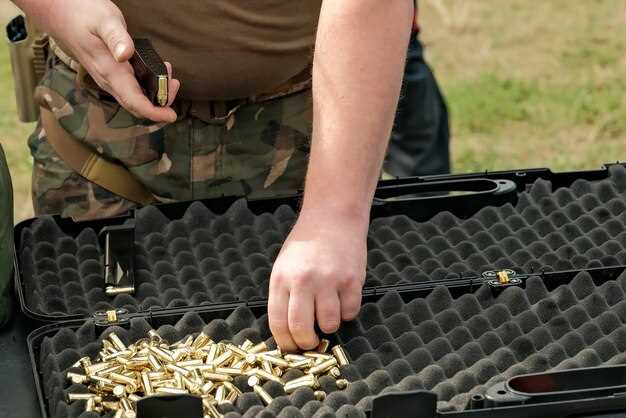
When venturing into the great outdoors for a hunting expedition, understanding the legal guidelines surrounding the transportation of firearms is crucial. Different regions have specific laws that dictate how firearms must be handled during travel, and compliance with these regulations is essential for both safety and legality. Hunters must be aware of the requirements to avoid potential legal issues that could arise from improper firearm transportation.
Transporting firearms involves more than just placing them in a vehicle. Various laws govern factors such as the storage of firearms, the type of ammunition, and whether hunters need permits for transportation. Additionally, different states and municipalities may have additional restrictions or requirements to consider. Familiarizing oneself with these rules can significantly enhance a hunter’s experience and ensure that their adventure remains enjoyable and free from legal complications.
Moreover, it is vital to recognize that the consequences of violating firearm transportation laws can be severe. Legal repercussions can range from fines to more serious charges that could impact one’s ability to hunt in the future. Therefore, hunters are encouraged to educate themselves on the specific legal guidelines applicable to their hunting locations, ensuring a responsible and lawful hunting experience.
Understanding State-Specific Regulations on Firearm Transportation

When it comes to transporting firearms while hunting, it’s crucial to understand the intricate web of state-specific regulations that govern this practice. Each state possesses its own set of laws, which can significantly impact how firearms are transported from one location to another. These regulations often dictate the manner in which firearms need to be secured, the condition in which they may be carried, and the legal responsibilities of individuals transporting firearms.
Some states require firearms to be unloaded and stored in a specific manner during transportation, often mandating that they be kept in a locked container, separate from ammunition. Others may have no such requirements but may enforce strict penalties for non-compliance. It is essential for hunters to familiarize themselves with these laws before embarking on a hunting trip, as failure to adhere to state regulations can result in legal consequences.
Furthermore, certain states may recognize permits issued by other states, while others do not. This can affect hunters who cross state lines, as they may find themselves facing different regulations as they transport their firearms. Investigating the laws pertaining to interstate transportation is vital for ensuring a smooth and lawful hunting experience.
Additionally, hunters should be aware that local jurisdictions within a state may impose further restrictions on firearm transportation. Urban areas, for instance, may have stricter regulations compared to rural regions. Understanding these local nuances is an important aspect of compliance and responsible firearm ownership.
In summary, navigating the patchwork of state-specific regulations regarding firearm transportation is essential for hunters. By educating themselves about the laws in each state they plan to hunt in, they can avoid legal pitfalls and focus on the enjoyment of their hunting experience.
Safely Storing and Securing Firearms During Transit
When it comes to the transportation of firearms, adherence to local and federal laws is paramount. Ensuring the safety and security of firearms during transit not only protects the owner but also adheres to legal requirements. Proper storage techniques can prevent accidents and unauthorized access.
First and foremost, firearms should be unloaded before transport. This principle is a critical safety measure that minimizes the risk of accidental discharge. It is also advisable to separate ammunition from the firearm and store it in a different compartment. Something as simple as a locked container can significantly enhance safety.
Using a quality hard case or lockable storage box is essential when transporting firearms. Such cases provide not only protection from physical damage but also deter unauthorized access. Many jurisdictions require that firearms be stored in a locked case while in transit. Always verify the specific laws pertaining to locking mechanisms and storage methods applicable in your area.
In addition to using a locked case, consider securing the firearm with a cable lock or trigger lock. These devices act as an additional layer of security. A well-implemented locking system can help prevent firearms from being accessed by children or individuals who are not legally permitted to use them.
It is important to familiarize yourself with the legal requirements for transporting firearms across state lines, as these can vary significantly. Some states have strict regulations regarding how firearms should be stored during transportation, impacting the type of carrying case or storage method used. Always check local and state laws to ensure compliance and avoid legal repercussions.
Lastly, if traveling long distances, consider the route and stops along the way. Keep firearms out of sight when stopping for breaks to minimize the risk of theft. Choose secure parking options when leaving your vehicle, and never leave firearms unattended.
Compliance with Federal Laws and Restrictions for Hunters

When hunting, it is essential for hunters to understand and adhere to federal laws and regulations regarding the transportation of firearms. The Gun Control Act of 1968 sets forth crucial guidelines that govern how firearms can be transported across state lines. Hunters must ensure that their firearms are unloaded and securely stored during transportation to comply with these legal standards.
Additionally, federal regulations prohibit the transportation of certain categories of firearms, such as automatic weapons or firearm silencers, without special permits. Hunters should also be aware of the National Firearms Act, which imposes additional restrictions on specific types of firearms and accessories, emphasizing the need for prior approval and registration.
It is equally important for hunters to be informed about the regulations imposed by the Bureau of Alcohol, Tobacco, Firearms and Explosives (ATF). These regulations can detail the methods allowed for transporting firearms, including the recommendation to use cases designed specifically for this purpose. Non-compliance can lead to severe penalties, including fines and potential criminal charges.
Moreover, hunters must recognize that federal laws do not operate in isolation; many states have their own regulations that further restrict or clarify transportation laws. It is vital for hunters to research and understand local regulations, as violations can result in significant legal repercussions. Ensuring full compliance with both federal and state laws is critical for safe and legal hunting activities.
Ultimately, adhering to these legal guidelines not only promotes responsible hunting practices but also helps ensure the safety of both hunters and the public. Educating oneself on the complexities of firearm transportation regulations is a necessary step in preparing for any hunting expedition.
